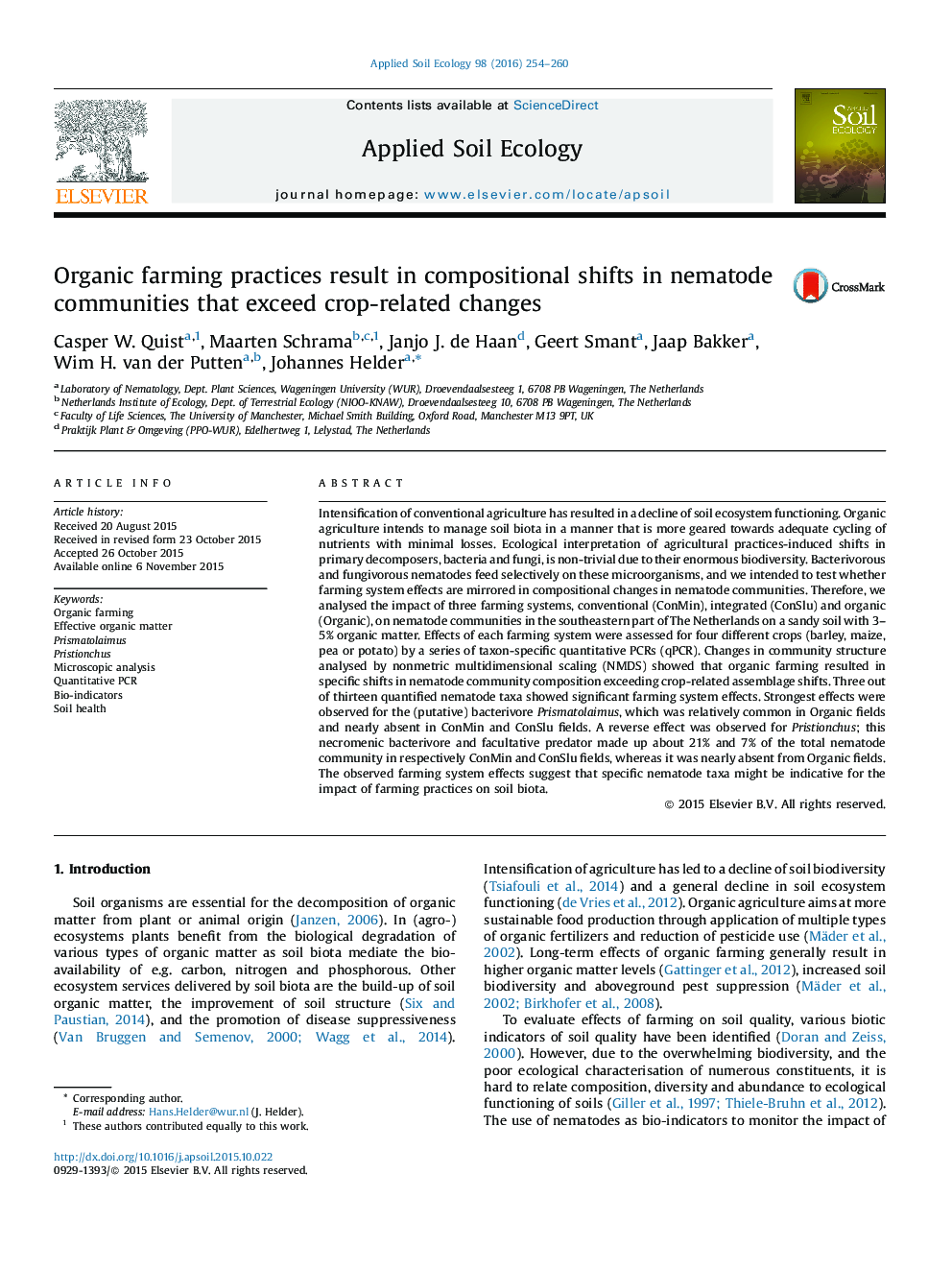| کد مقاله | کد نشریه | سال انتشار | مقاله انگلیسی | نسخه تمام متن |
|---|---|---|---|---|
| 4381877 | 1617785 | 2016 | 7 صفحه PDF | دانلود رایگان |
• Both farming system and crop affect parasitic and free-living nematode communities.
• Organic farming practices resulted in community shifts exceeding crop-related changes.
• Organic farming induced increased levels of the bacterivorous Prismatolaimus.
• Organic farming resulted in reduced levels of the necromenic genus Pristionchus.
Intensification of conventional agriculture has resulted in a decline of soil ecosystem functioning. Organic agriculture intends to manage soil biota in a manner that is more geared towards adequate cycling of nutrients with minimal losses. Ecological interpretation of agricultural practices-induced shifts in primary decomposers, bacteria and fungi, is non-trivial due to their enormous biodiversity. Bacterivorous and fungivorous nematodes feed selectively on these microorganisms, and we intended to test whether farming system effects are mirrored in compositional changes in nematode communities. Therefore, we analysed the impact of three farming systems, conventional (ConMin), integrated (ConSlu) and organic (Organic), on nematode communities in the southeastern part of The Netherlands on a sandy soil with 3–5% organic matter. Effects of each farming system were assessed for four different crops (barley, maize, pea or potato) by a series of taxon-specific quantitative PCRs (qPCR). Changes in community structure analysed by nonmetric multidimensional scaling (NMDS) showed that organic farming resulted in specific shifts in nematode community composition exceeding crop-related assemblage shifts. Three out of thirteen quantified nematode taxa showed significant farming system effects. Strongest effects were observed for the (putative) bacterivore Prismatolaimus, which was relatively common in Organic fields and nearly absent in ConMin and ConSlu fields. A reverse effect was observed for Pristionchus; this necromenic bacterivore and facultative predator made up about 21% and 7% of the total nematode community in respectively ConMin and ConSlu fields, whereas it was nearly absent from Organic fields. The observed farming system effects suggest that specific nematode taxa might be indicative for the impact of farming practices on soil biota.
Journal: Applied Soil Ecology - Volume 98, February 2016, Pages 254–260
